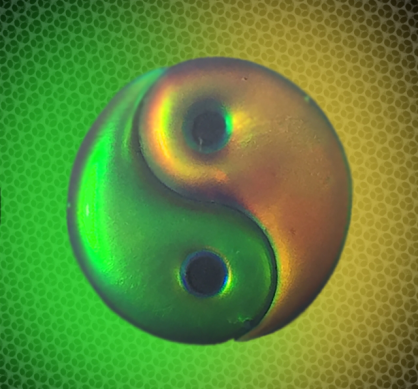Professor Zhao Yuanjin and His Research Team of Southeast University Published the Latest Research Progress in the PNAS

Recently, Professor Zhao Yuanjin, and his team made significant progress in the research of self-repairing bio-materials at the State Key Laboratory of Bio-electronics, School of Bio-science and Medical Engineering,Southeast University. Inspired by the self-repairing process of the human tissues, the members of the research group have developed a three-dimensional cross-linked networkof the mixed hydrogel system, which equips the biological materials with the self-repairing function. The results were published in the international Journal of the Proceedings of the National Academy of Sciences (PNAS) on May 22.
In the field of bio-medicine, hydrogel materials are widely used in bio-sensing, tissue engineering and other areas because of its unique softness and water retention. However, their vulnerability to damage in practice limit their wide use.Comparatively, most organisms have fostered their ability of self-repairing and recovery to improve their own quality of life and life cycle. Inspired by this, researchers have developed self-repairing hydrogel materials and applied them to different areas. However, many of the hydrogel materials required for bio-medicine can not achieve the function of self-repair because of their stable composition and simple structure. Therefore, Professor Zhao Yuanjin proposed the solution of constructinga three-dimensional cross-linked gel system. The members of the group found that composite materials could achieve the self-repairing function oncethey imparted another gel with self-repairing function into the anti-opal gel mesh without self-repairing function. The better bio-compatibility these materials demonstrated before and after self-repairing shows their bio-medical potential. In addition, due to the ordered microstructure of the composite materials and their preservation of light-diffracted colors, these self-repairing materials can also be used for the building of the three-dimensional pattern of structural colors and provide new ideas for the new concept of anti-forgery and optical waveguide.
As famed as the Nature and Science, The Proceedings of the National Academy of Sciences (PNAS) is one of the most cited comprehensive literature. The relevant work of the project has been funded by the National Excellent Youth Fund, Jiangsu Province Outstanding Youth Fund, and the 111 Program (Organ and Chip Science Innovation Guidance Base Project in Southeast University). The first author of the paper is Fu Fanfan, a 2015 doctoral student of Southeast University, and Professor Zhao Yuan Jin is the only corresponding author.

